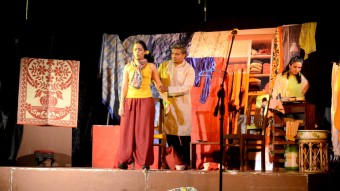Who alive today will be talked about a thousand years from now – really talked about, click the way we remember Julius Caesar, Akbar or Galileo? Only a handful of people, to be sure. Neil Armstrong and Mikhail Gorbachev come to mind as possible candidates. Dead at age 87 this past week, Margaret Thatcher was on that list.
You didn’t have to love the Iron Lady to recognize what she meant to the world – and that she was indeed a towering historical figure. Before her, civilisation was going in one direction, and after her, another. More than anyone else, it was Thatcher who solidified the notion, after decades of experimentation with utopian alternatives, that free enterprise was humanity’s best hope for advancement. In recent years, Thatcher’s notion has once again come under increased scrutiny, but it remains true that, for better or worse, her brand of free-wheeling economics became the new normal for much of the world, including India, and she thus changed the course of civilisation.
As the first and only female prime minister of Great Britain – and the longest serving one of the past century – she seldom spoke in favour of women or the advancement of women or equality for women. She just lived it. And that was far more powerful than words.
There are two different kinds of people – those who see the world as it is and those who see it as it should be. Thatcher belonged to the former category – practical and realistic and standing up for the values of personal responsibility, industry and ambition. She believed in competition. When she came to power, she was the antidote to the perceived narcissism and self-indulgence of the 1970s.
And this brings me to the point raised in the headline of this article – our children. If Thatcher’s change was one of values, I’d like to ask the question where those values fit right here in Goa when it comes to educating our kids. A certain prevalent philosophy in many schools these days holds that the only worthy competition is internal – competition with yourself – and that the values of peace, harmony and spiritual fulfilment are what matter most. It’s the opposite of Thatcherism.
I don’t know if I’m alone in this observation, but there seems to be two extreme educational philosophies for young people in Goa, and very little middle ground. On one side, aggressive competition and on the other, soft 1970s-style self-exploration. On the one side, Thatcherism, and on the other, Lennonism (I refer here not to Vladimir Lenin but John Lennon and his utopian song ‘Imagine.’)
The truth is both these philosophies have their merits and pitfalls. It can be argued that Britain’s dynamism – from its punk radicalism to its lively arts scene to its technological prowess – can be attributed to a considerable extent to Thatcher, even if she never intended many of those results (did Gorbachev intend the collapse of the Soviet Union?). But it’s also true she left behind a deeply unequal society, which provided a fantastic existence for the educated elite and a miserable one for many working-class people. If entrepreneurialism and self-sufficiency were the hallmarks of Thatcher’s rule, so, too, were militarism, intolerance and indifference to the plight of the poor.
[tok id=2935d464e3e27aad336b1fb6b901bd5e partner=9385]
For my wife and myself, the choice in schooling between Thatcherism and Lennonism wasn’t a hard one. We would never subject our kids to the former.
And yet, when I sat in my living room in Guirim last year watching the Olympics, it was crystal clear that global, multicultural Great Britain was living up to the ‘Great’ in its name – as opposed to the nation in decline Thatcher inherited before she took over and changed the paradigm.
Tony Blair, when he put forth the Third Way, did not have to renounce his liberal ideals when he adopted the central tenet of Thatcherism.
Perhaps the Iron Lady’s death can serve as a reminder that, even as we strive to build a more compassionate world for our children, there’s something to be said for old-fashioned discipline – and the competition that leads to advancement. That while we build the world as it should be, we must prepare our kids to confront the realities of what it is.
Maggie would surely agree.
.
.
.





